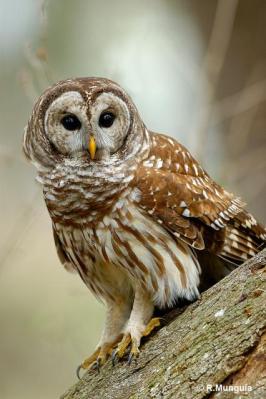Reginald, Oliver, and the rest of the turkeys spent all winter down south near the Oliver’s Ocean, which the turkeys had decided to call the lake they had visited. By early spring, however, the weather grew much warmer. The turkeys came together and decided to start for home. After saying goodbye to the turkey friends they had made at the orchard, Reginald slowly led his group back to the north.
The turkeys enjoyed the weather up north now that winter had gone. To them, it was cold but not too cold, and most of the snow was quickly melting. But Reginald still had to guide the turkeys through different paths that he and a few others would have to create. Sometimes, the snow was soft enough to crush under their feet and walk through, but other times they had to climb over a large pile in their way. Oliver enjoyed stomping through the puddles, though once he fell into a hole he believed was a puddle, and Reginald had to help drag him out as Oliver flailed. The turkeys eventually made it back to their fortress, which was mostly clear of snow.
Inside the tunnels they had built, the turkeys worked to clear the remaining snow so they could easily walk through all the tunnels. They all hoped that, now that it was Spring, they wouldn’t have to worry about the cold, and they looked forward to heading back to their turkey friends in the South next winter.
But one day, Reginald woke up and realized that the weather was incredibly cold. He tried to look outside, but the entrance to the front of the fortress was covered with a dark wall of snow that he couldn’t get through. The rest of the turkeys sleeping on that side woke up and tried to help Reginald push the snow away, but it was too thick. Some of them tried gobbling for help, but the rest of the turkeys couldn’t hear them.
Inside another set of tunnels, Oliver woke up and noticed the snow as well. Luckily, he and a few other turkeys were able to scramble out of an opening and examine the woods around the fortress. Several inches of snow lay around and on top of the fortress the turkeys had made, with some of the tunnels clogged with slush. Oliver suddenly realized that Reginald and the others must be stuck inside since they hadn’t come out.
Oliver sat in the snow and started thinking. The few other turkeys waited, unsure of what to do. Oliver knew he needed to come up with a good idea to clear the snow away so that the others could get out. After thinking long and hard, however, Oliver still couldn’t come up with anything.
Just then, a branch from one of the trees above him dropped onto his head, knocking Oliver over. One of the other turkeys with him had to pull it off. When Oliver got up, he noticed how the branch made marks in the snow, and suddenly he came up with an idea.
Oliver told the turkeys that he needed their help taking the branch to the tunnel entrance. One of the turkeys went ahead to locate where Reginald was trapped. As Oliver carried the branch ahead, the other turkey found the entrance to the tunnel where Reginald and the other turkeys were. Immediately, Oliver placed the branch in the snow and used its limbs to drag the snow away. The branch caught large chunks of snow and helped Oliver clear it away. The other turkeys helped by using their feathers, until most of the snow was cleared. Reginald pushed the rest aside and was surprised to discover Oliver with the branch, along with the other turkeys.
Reginald, impressed at Oliver’s idea and leadership, allowed Oliver to use the branch to clear the rest of the snow so that all the turkeys could get out. They all agreed to find more branches similar to the one Oliver discovered so they could keep clearing the snow once it snowed again.
Fortunately, no more snow fell, and the air started to get warmer again. In a couple more days, most of the new snow had melted, so the turkeys didn’t have to worry about being trapped again. They were now free to enjoy the spring without the snow, though Reginald asked Oliver to continue finding branches so that they would be prepared.
“Two are better than one because they have a good return for their labor. For if either of them falls, the one will lift up his companion. But woe to the one who falls when there is not another to lift him up.” (Ecclesiastes 4:9-10 NASB)
Lee’s Addition:
It is nice to receive another story from Emma. She has been busy growing up and finishing College and adventures beyond.
We have enjoyed all her stories, and you can read or re-read them here at:


















































